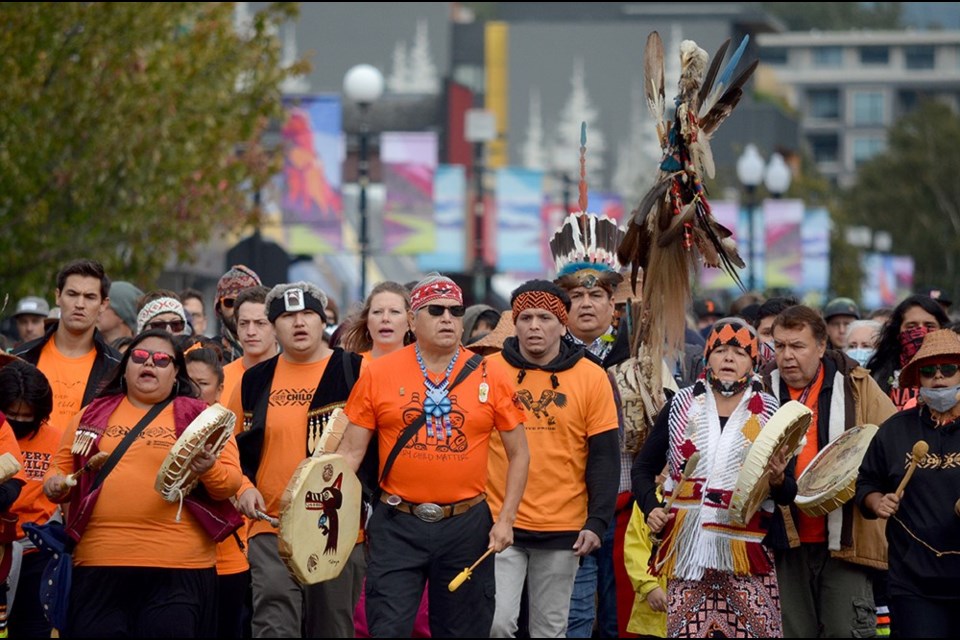Cindy Blackstock, the executive director of the First Nations Child and Family Caring Society of Canada and a professor at McGill University, knew she wanted to fight for changes to the way the federal government dealt with First Nations youth after she switched in the 1990s from being a child welfare worker for the Province of B.C., based in North Vancouver, to working with the Squamish Nation within its Ayás Méńmen program.
What she saw with the switch was how differently on-reserve youth were treated from other B.C. kids.
“I was just gobsmacked about how the basic services I took for granted, literally across the street, were not funded by the federal government,” she said, on the CBC Front Burner podcast, which aired Jan. 7.
She tells of seeing a young boy on reserve who had cerebral palsy and had outgrown his standing frame, which was held together with duct tape.
“I called Health Canada and said, ‘This child needs a new standing frame. Here’s all the documentation.’”
She was told because the boy had gotten a new wheelchair three years before, he was not eligible.
It would be another two years before he could get anything new. This was just one example of an “apartheid system” she witnessed, she said.
“Families were trying to recover from residential schools, but they had far less services to do it. And the government had done an injustice to the Canadian public because they had woven a narrative that they were doing more for First Nations than for everybody else, not less,” said Blackstock.
She is holding her applause for the tentative agreement announced Jan. 4 that she worked toward — a $40-billion deal between First Nations and the federal government — until it is finalized and put into action, she said.
“The agreement-in-principal tries to make amends for those harmed by discriminatory underfunding of First Nations child and family services and to achieve long-term reform of the First Nations Child and Family Services (FNCFS) program and Jordan’s Principle, to ensure that no child faces discrimination again,” reads the federal news release about the deal.
The Jordan’s Principle is basically the idea that First Nations kids should not go without services — for example, mental health supports, while governments argue over jurisdiction. Instead, the government of first contact has to supply the service.
The pending deal earmarks $20 billion in compensation for First Nations children who were removed from their homes between April 1, 1991, and March 31, 2022, as well as for their parents and caregivers.
The “harm” this addresses is that many children who could have been with their biological families were removed and placed with strangers or were denied services.
As the Assembly of First Nations (AFN) said in its release about the deal, The Canadian Human Rights Tribunal found the current child welfare program “contains a perverse incentive for child welfare agencies to apprehend children. Specifically, a child welfare agency would not be reimbursed for expenses incurred to provide services, unless the child was removed from their home and placed into state care. The federal government’s narrow implementation of Jordan’s Principle resulted in First Nation children being denied medical and other services which, in some cases, forced parents to place their children into care.”
Hard to imagine how any amount of money could make up for that.
And it should not be forgotten that it has been a long road to get here. In the meantime, harm has continued.
The AFN and the First Nations Child and Family Caring Society first filed a complaint about the treatment of First Nations on-reserve children under the Canadian Human Rights Act in 2007.
While the $40,000 potentially allotted to individuals and their families who were harmed is what many will focus on with this deal, it is the promised structural changes that First Nations leaders are pointing to.
Close to $20 million is aimed at reforms to the FNCFS program.
“The Squamish Nation has always been committed to protecting our children and people. With the proposed reform and financial redress, our Nation will have the power to separate from colonial systems and offer holistic, cultural support and care to Nation members who need it, when they need it,” said Squamish Nation councillor and spokesperson, Sxwíxwtn, Wilson Williams.
“The agreement is a historic example of justice for our youth and families,” he added.
“It empowers the Nation to protect our children from established colonial systems and interference with our ancestral family structures.”
“The Nation acknowledges the long and arduous journey to this historical moment of justice. We raise our hands to those who have lovingly advocated for all our children and families,” Wilson said.



